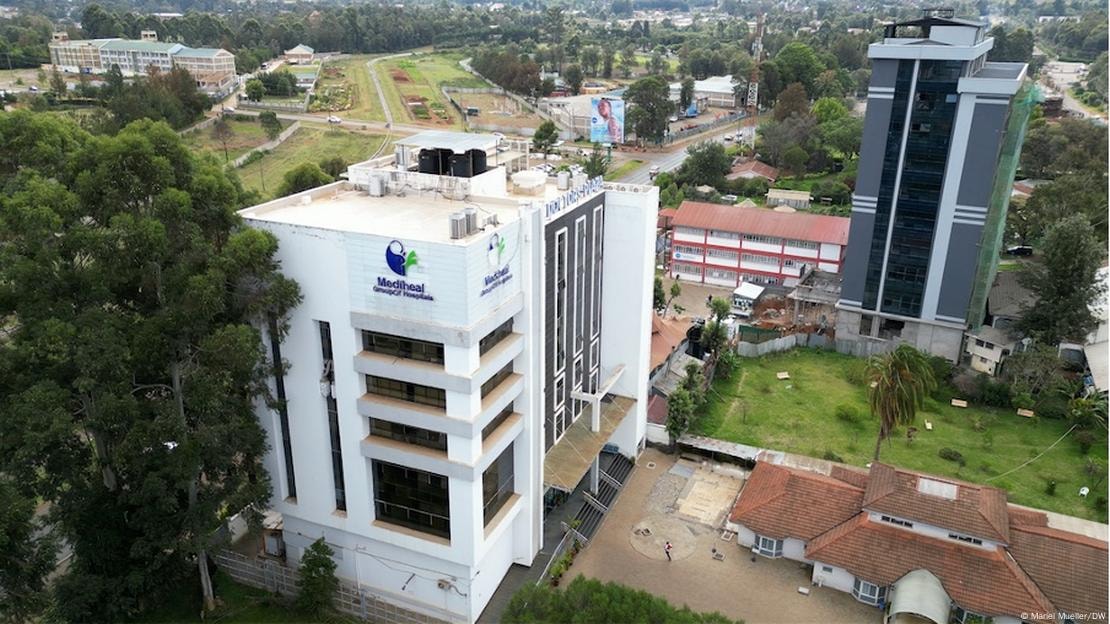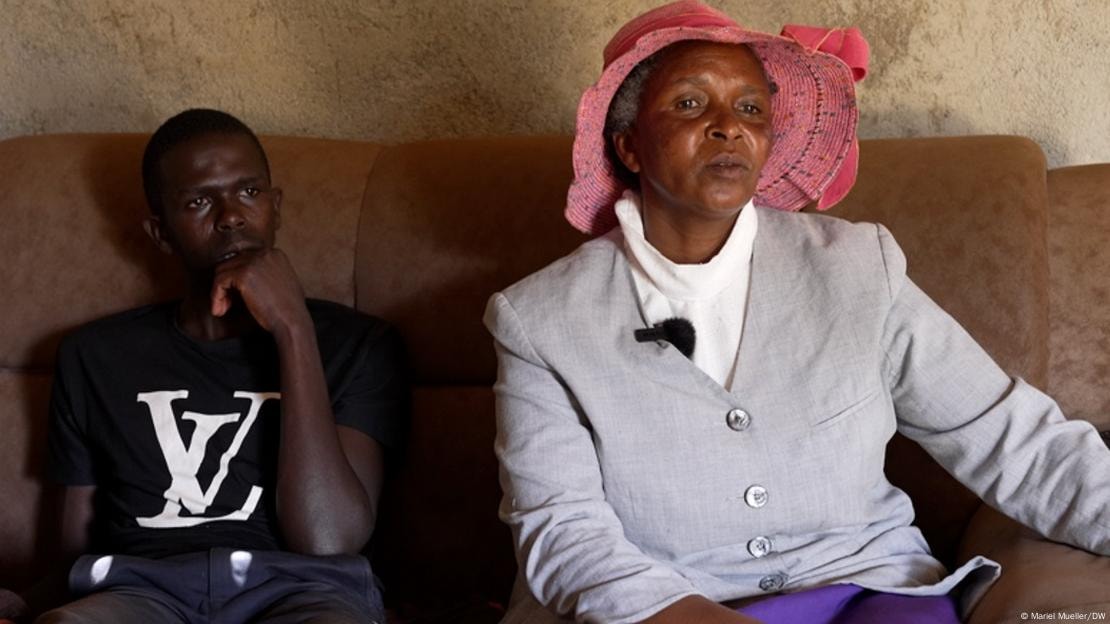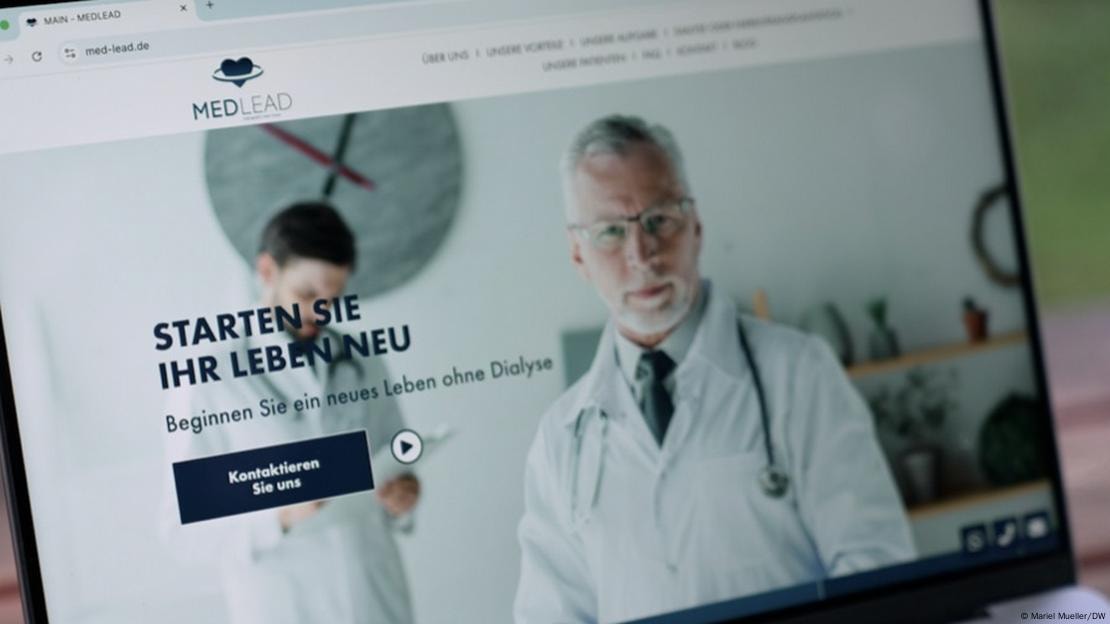A young Kenyan man was tricked into selling his kidney for $4,000, while the recipient paid $200,000. An investigation has exposed a sophisticated organ trafficking network that stretched from Africa to Europe.

In a village in western Kenya, 22-year-old Amon Kipruto Mely thought selling his kidney would open the door to a better life. After the Covid-19 pandemic, life became difficult as he bounced from job to job. A friend’s offer of a quick $6,000 plunged him into a dark web of exploitation and despair.
How organ trafficking works
A months-long investigation by German media outlets – Der Spiegel, ZDF and DW – has revealed an international network stretching from Kenya to Germany, exploiting vulnerable people at both ends: the poor needing money and the rich needing organs.
Amon was taken to Mediheal Hospital in Eldoret, western Kenya, where he was greeted by doctors and asked to sign documents in English, a language he did not understand. He was not informed of any health risks and was paid only $4,000 instead of the promised $6,000 for the surgery.
"They didn't explain anything to me. The person who took me pointed to the people around us and said, 'Look, they all donated blood and they even went back to work,'" Amon recalled.
After the surgery, Amon's health deteriorated dramatically - dizziness, weakness and frequent fainting spells. His mother, Leah Metto, painfully commented: "They are making money through young people like Amon".
Large scale and sophisticated methods
Willis Okumu, an organized crime researcher at the African Institute for Security Studies in Nairobi, estimates that in the town of Oyugis alone, 180km from Eldoret, there may be up to 100 young men who have sold their kidneys, many of them with serious health problems.
"This is actually organized crime. I don't think they'll live to be 60," said Okumu.
Notably, donors are then encouraged to recruit others for a commission of $400 each, creating a continuous chain of exploitation. Under Kenyan law, organ donation is only permitted for relatives or for humanitarian reasons.
A former long-time employee of Mediheal Hospital revealed that the organ procurement and transplant operations began many years ago, initially with recipients from Somalia. From 2022, recipients began to come from Israel, and from early 2024, there were additional customers from Germany.

Business profiting from urgent need
The business boomed as it shifted to serving recipients from Israel and Germany, with recipients paying up to $200,000 for a kidney, multiple sources confirmed. According to former hospital employees, an organization called “MedLead” was responsible for finding international donors and recipients.
In Germany, the waiting list for a new kidney can be eight to 10 years long, with more than 10,000 people waiting. German law only allows kidneys from people who have died and agreed to donate, leading to a severe shortage.
Sabine Fischer-Kugler, a 57-year-old woman from Gunzenhausen, Germany, had to travel to Kenya after her first kidney transplant stopped working. She only met her donor, a 24-year-old man from Azerbaijan, briefly. The contract stated that he would not be paid, although Fischer-Kugler admitted to paying MedLead between $100,000 and $200,000.
"Maybe I was a bit selfish because I wanted this kidney, and most importantly the contract seemed okay. But it was clear that the surgery was not as 'clean' as it appeared," Ms. Sabine admitted.
International network with questionable history
The man behind MedLead is Israeli citizen Robert Shpolanski, who, according to a 2016 indictment by the Tel Aviv District Court, was accused of performing a large number of illegal kidney transplants in Sri Lanka, Türkiye, the Philippines and Thailand. MedLead denies all allegations, insisting that it operates transparently and in compliance with the law.
At the Eka Hotel in Eldoret, 1 km from Mediheal Hospital, the undercover team met with foreign patients waiting for organ transplants. A Russian woman waiting for her husband's surgery said bluntly: "Nobody gives their kidney for free."
“We have reports of Israeli patients returning with severe infections, some with kidneys that have essentially died,” said Dr Jonathan Wala, head of the Kenya Kidney Association.

In 2023, the Kenyan Ministry of Health investigated Mediheal Hospital and found that donors and recipients were often unrelated, some high-risk transplants were performed on cancer patients or the extremely elderly, and most procedures were paid for in cash. However, the report was never made public and no action was taken.
Mediheal Group is founded by Swarup Mishra, a former Indian-origin MP who is said to have a good relationship with Kenyan President William Ruto. Despite the persistent allegations, the president appointed him as chairman of the state-owned Kenya BioVax Vaccine Institute in November last year.
Following the investigation report, Kenya’s health minister ordered an audit of Mediheal Hospital and seven other transplant facilities, and suspended kidney transplant services at Mediheal Hospital. A new investigation committee has been set up to review all kidney transplants at Mediheal over the past five years.
Meanwhile, Amon and others like him struggle to survive with one kidney, their health failing and their hopes dashed: "If I could turn back time, I would not accept having my kidney removed. I hate myself for it."